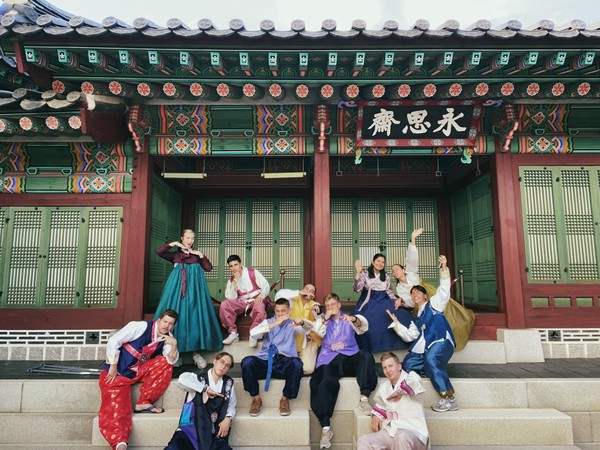KAIST partners with 188 universities to offer students one or two-semester exchange programs which include specialized science and engineering courses and the opportunity to experience a new culture; in return, exchange students contribute to the KAIST community with their different perspectives. While these programs were temporarily suspended due to the COVID-19 pandemic, this fall, KAIST welcomed more than 150 exchange students on campus for the in-person university experience. The KAIST Herald interviewed 15 exchange students on their experiences so far.

Many exchange students arrived in Korea, let alone Asia, for the first time and anticipated a culture barrier. While some have found it difficult to interact with Korean students, especially due to the limited clubs open to international students, they expressed that all students have been friendly once approached and that Daejeon locals are welcoming and make an effort to understand what they are saying. Nevertheless, they also were surprised by how quiet most classes are: very few students ask questions and there is little in-class discussion compared to their home university classes.
Being in a new country poses new cultural norms and many found Korean food, dormitories, and social etiquette to be the biggest changes from their home universities.
While most are enjoying the cafeteria food, some are having difficulties finding options that fit their dietary needs. Richard Kuhlmann, a RWTH Aachen University student from Germany, expressed,“The biggest change for me has been my diet. I used to be vegetarian and cooked a lot of food for myself. Here, it is almost impossible to find food without meat, and you have to eat at a cafeteria or restaurant since we don't have kitchens in the dormitory.”
Many were also surprised that on-campus dormitories were separated by gender and had extensive CCTV monitoring. Students also pointed out that social etiquette, especially when it comes to interacting with strangers, differs greatly between Korea and where they are from. Here, there is little verbal communication between strangers, even in the streets or subways.
It was particularly fascinating to hear the perspectives of exchange students who are of Korean heritage but grew up in a different country: Bo Lee, a half-Korean student in the Netherlands who grew up in the UK and speaks basic Korean, and Eana Han, a full-Korean student in Canada who spent part of her childhood in Korea and speaks fluent Korean.
Bo mentioned that being half-Korean has made his time in Korea a bit easier since he already had knowledge of the culture. However, having grown up in the UK, he expressed that “coming to [Korea] for the first time made me realize how much of the culture I had missed out on by not living here. It has been a great time learning the culture and seeing things I had forgotten from my culture growing up.” When interacting with locals, Bo explained that since he doesn’t look fully Korean, he is perceived as a foreigner. When locals learn that he is Korean, they are intrigued about his upbringing but ultimately, Bo expressed that “I'm still treated like a foreigner but I think this is justified as culturally and lingually I'm not fully Korean.”
On the other hand, Eana mentioned that being able to speak fluent Korean has been beneficial because “I get to communicate with both English and Korean speakers. I also enjoy introducing exchange students to Korean culture.” When going to restaurants with other exchange students, waiters try to communicate with her. Eana enjoys being the bridge between locals and exchange students, stating that “once, a nice ajumma cook decided to add three extra eggs in our steamed egg dish because she appreciated how I helped them clarify orders in Korean.”
Exchange students unanimously encouraged future exchange students to learn Korean, even if it is just knowing how to read and speak basic phrases. Many wish they had learned Korean prior to arriving at KAIST because it would allow them to converse with Korean students more often and immerse themselves more outside of campus.
While living in a new country can be intimidating, it ultimately offers exchange students an invaluable opportunity to widen their perspectives, make meaningful relationships, and immerse themselves in a new culture. It is evident that exchange students at KAIST have enjoyed their time so far, and The KAIST Herald wishes them the best for the rest of the semester.

